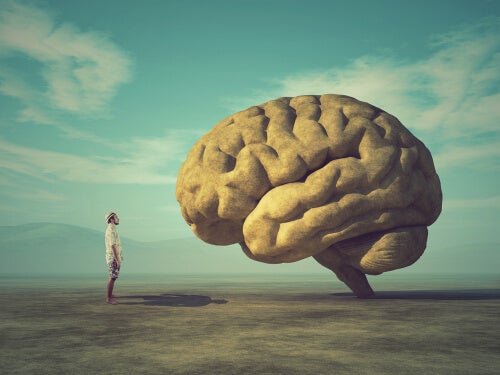(Exploring Your Mind) We each face confinement in different ways. However, our brain can suffer very specific problems in these difficult days. Knowing about them will allow us to apply a series of strategies in order to take better care of our mental health.
Related WHO Suggests Kidnapping Your Children To Fight Coronavirus
by Staff Writer, April 7th, 2020
Depending on our individual circumstances, confinement can affect us in different ways. We each have particular situations, unique contexts, and experience particular circumstances. On the other hand, within our own uniqueness, we’re all forced to comply with our governments’ guidelines in this extraordinary situation, which can condition us in ways we wouldn’t have thought possible. In this article, discover how lockdown affects the brain.
Although we’d like to refer to previous studies on the effects of confinement on human beings, nothing conclusive is available. This is simply because we haven’t experienced anything like this before. However, one piece of research we can mention was conducted at King’s College London and published in The Lancet.
In 2003, a lockdown was conducted in 10 countries due to the SARS virus. There’s also some information from isolations conducted each year due to Ebola. All this information has given us, without a doubt, a foundation to understand how lockdown affects the brain and our mental health.
On the other hand, we also have impressive works on the consequences of prison confinement. Although, as you can imagine, the situation isn’t the same as the one we’re experiencing now, despite there being some common elements.
All these studies help us understand the impact this situation could have on the brain and the strategies we can develop to improve our sense of well-being.

How lockdown affects the brain
Experts warn us that the ones who may suffer most from this reality are those who are alone in confinement. Without a doubt, the elderly are the most vulnerable group.
To understand what consequences the most severe confinement situations can have, we can consider the dramatic example of Robert King, a man who spent 29 years of his life at the Louisiana State Penitentiary.
This man was imprisoned for a crime he didn’t commit and had to develop mental strategies to be able to deal with confinement in complete solitude.
Despite his mental strength, the consequences of spending three decades in such a situation were evident: memory problems, orientation problems, socialization difficulties, mood disorders, attention problems, and even psychotic flare-ups.
Fortunately, this situation is different: we’re confined but we can maintain social contact with our loved ones through technology.
We have tools, family, friends, neighbors, and other things to keep us entertained. Facing isolation in company, or with constant stimuli to focus on, cushions the negative effects, which is a great advantage.
What day is it?
As the days of confinement lengthen, we may start to have a problem remembering what day it is. The reason for this is simple: we’re generally following the same routines, and we just start to do the same things, whether it be Monday or Saturday. We lose our points of reference.
Not too long ago, we were yearning for Friday to arrive. However, we’re now focusing more on the here and now – trying to stay well one day at a time.
On constant alert: something’s going to happen
Your brain doesn’t get along with uncertainty, especially when you feel your ability to plan is being hijacked. Let’s face it, this is what we’re dealing with at the moment.
Some will handle this better, others worse. However, in the most problematic cases, one can start to think that something could happen at any moment.
If you give in to these ideas and feelings, you’ll start to suffer insomnia and you may even start to panic. As a study conducted in 2016 by neuroscientists at University College London explains, we must be clear about a few things:
- In the face of uncertainty and not knowing what will happen tomorrow, the brain acts by feeding fear.
- This will make you focus your attention on negative and irrational ideas.
- You must control this focus by focusing on the here and now. Don’t think about the future; just worry about being well in the here and now. Give your body and brain what they really need: a rest, a call, or book to read, among other options.
Book I Am Your Mirror: Mirror Neurons and Empathy
Overthinking and mental overload
One of the ways confinement affects our brain is through mental exhaustion. Almost without realizing it, we begin to generate one thought after another until we end up feeling trapped. This effect is also a direct consequence of fear and uncertainty.
We worry about a lot of things and, obviously, worrying in a situation like this is completely understandable. However, let’s be clear: there’s a limit to everything. If we let this mental overload increase every day, then the demon of anxiety will come.
There’s a strategy for dealing with this situation. Try to limit the worry to one or two moments during the day. When the worry arises, just accept it and analyze each thought calmly.
Ask yourself whether this idea is real or totally irrational. If it’s the latter, and if it just makes you feel even more uncomfortable, then just let it go. Don’t hang on to it.
Emotional ups and downs
You’ve probably suffered emotional ups and downs on many occasions. They’re perfectly normal in these circumstances. Going from happiness to laziness, from motivated to discouraged, and from hopeful to fearful is something we’re all going through. You need to accept these emotional experiences as another part of your survival mechanism.
It’s essential that you don’t allow these negative thoughts to plunge you into a state of helplessness. Fear and sadness should be passing clouds. Yes, they may drift by for a few minutes but they shouldn’t be allowed to settle.

A sense of unreality: our old life seems more and more distant
This is another curious consequence of confinement on your brain. It’s actually very similar to what people have experienced in sensory deprivation rooms. Suddenly, your old life seems distant and almost unreal. What you are now, or were before, seems to be blurring.
Book Powerful Hypnosis – Revealing Confessions of a Rogue Hypnotist
This is a trick your brain plays on you. It’s trying to convince you that it’s been months since you were last out on the street. To prevent this, here are some steps you can take:
- Stay active in work-related tasks.
- Have a positive interaction with loved ones. Every time you make a call or video call, try to remember the good times you had with those friends or family.
- Set goals for the near future. Convince your brain that you’ll be able to fulfill those goals and dreams!
To conclude, what we’re all experiencing now is unique and exceptional. It’s difficult to foresee how each person will react but we’re all dealing with it as best we can. You need to realize all the personal coping resources you have!
Stillness in the Storm Editor: Why did we post this?
Consciousness is one of the most mysterious phenomena of all time. Scientists, philosophers, and mystics have been searching for the answer to the question, What is Consciousness? for most of human history. In modern times, the spiritual origins of consciousness are being replaced with a materialistic view, that awareness emerges as an additive property of electrical impulses in living things. Despite the fact this theory is assumed to be true, any self-respecting psychologist will tell you we have no idea what consciousness really is. The preceding article discusses consciousness, some of its properties, and possible origins. This is helpful to contemplate because, in the act of trying to understand the mysteries of consciousness, you develop critical thinking skills and stimulate your philosophic muscles, both which are immensely important for almost everything we do in life. Additionally, you’ll develop abstract thinking skills, the ability to explore intangible realities that govern material realms. With the power of an active mind capable of navigating the realities of consciousness, great leaps in personal attainment can be made along with preparing you for the Great Work of making this world a better place.
– Justin
Not sure how to make sense of this? Want to learn how to discern like a pro? Read this essential guide to discernment, analysis of claims, and understanding the truth in a world of deception: 4 Key Steps of Discernment – Advanced Truth-Seeking Tools.
Stillness in the Storm Editor’s note: Did you find a spelling error or grammatical mistake? Send an email to [email protected], with the error and suggested correction, along with the headline and url. Do you think this article needs an update? Or do you just have some feedback? Send us an email at [email protected]. Thank you for reading.
Source:
https://exploringyourmind.com/how-lockdown-affects-the-brain/

My life completely abandoned me I feel in a another world totally detached from the ‘reality’